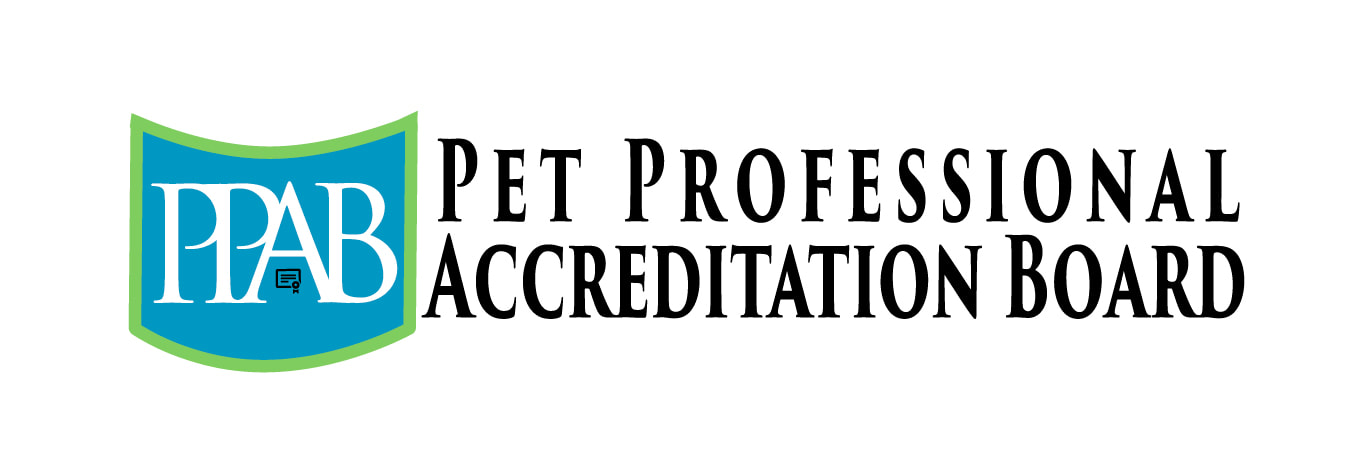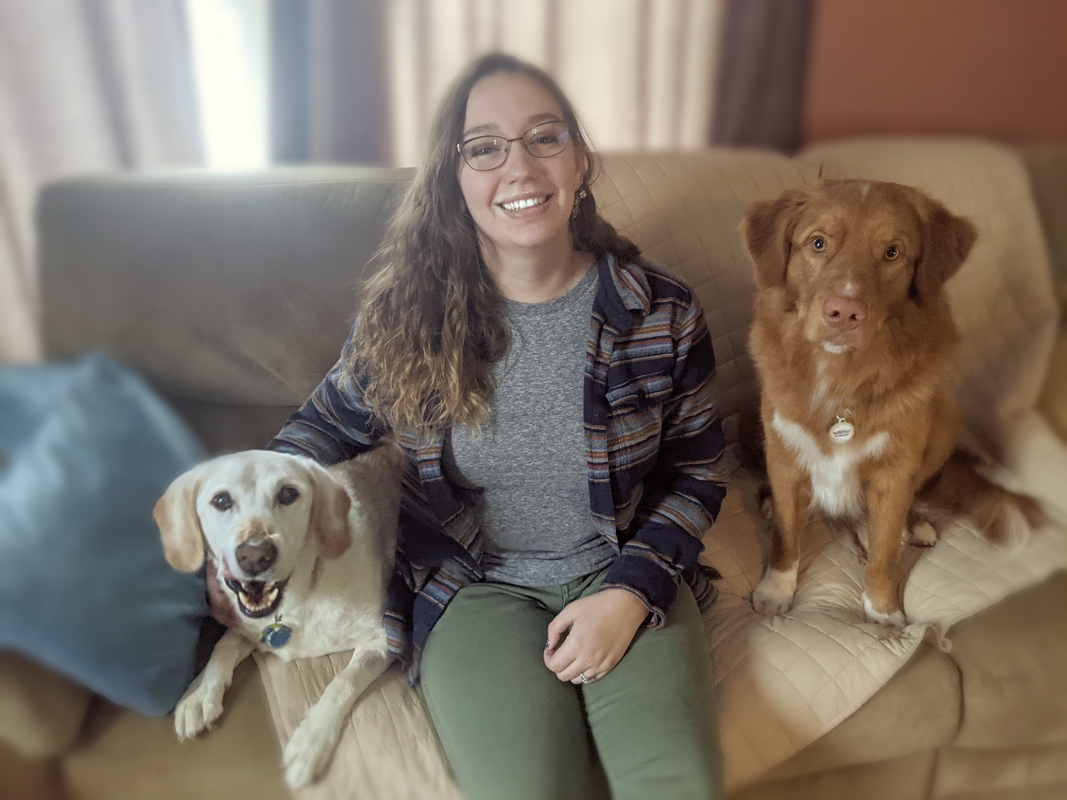 Today we will be taking a closer look at dog training schools! This post is helpful for those looking to get started as a dog trainer, as well as those who are vetting the dog trainers they hire to ensure they will provide them with accurate and up to date information. As we’ve discussed previously when we looked at independent dog trainer certifications, there is no regulation in the dog training industry. Schools, certifications, and memberships are not required of any trainer. Trainers are also not required to adhere to any professional requirements in the United States. Many trainers do choose to attend a school, earn a certification, or hold membership with an organization. Each school, certification, and membership can tell you a little about the trainer’s philosophy and guiding ethos. Let’s break down some of the more common dog training schools! Animal Behavior College The ABC offers courses to help trainers develop the basic knowledge of dog training. Graduates earn their ABCDT (Animal Behavior College Certified Dog Trainers) designation. The organization focuses on (but does not limit it’s curriculum to) teaching positive reinforcement training methods. It also doesn’t hold graduates to continuing education or to using a specific method after graduation. ABC is a place that many trainers can start their education, but a lot of professional trainers should pursue additional education or certification as well. The Academy for Dog Trainers The Academy, as it’s often referred to by dog trainers, was formed by an exceptional trainer by the name of Jean Donaldson. This school provides a comprehensive curriculum on the education of dog training and behavior, both through online lectures and live video coaching of hands on training. Graduates earn the designation CTC, for Certificate in Training and Counseling. Karen Pryor Academy Also known as KPA, this school is high on many trainer’s lists for education in the field. Combining in-person and online work, KPA ensures their certificants receive a full and thorough education in positive reinforcement dog training. Karen Pryor is known for her work popularizing clicker training with a wide variety of animal species and her popular book, Don’t Shoot the Dog, is applicable to both animal-human and human-human relationships! Someone who has gone through KPA earns the designated KPA-CTP (Karen Pryor Academy - Certified Training Partner) and this school is a great place to begin a trainer search as well. Starmark Academy This program is 4, 8, or 12 weeks at the very longest. I am of the opinion (along with many other trainers) that this is not nearly enough time or experience to become a professional dog trainer. In addition, Starmark does not hold graduates to positive reinforcement based methods (which are recommended by the leading animal behavior organizations) and graduates may choose to use correctional collars. The company itself is known for making its own correction collar, effectively a plastic prong collar designed to pinch the neck. They designate their graduates as “Canine Training Specialists” or “Canine Training and Behavior Specialists.” I’d encourage those looking at trainers to further speak with Starmark graduates to ensure their philosophy aligns with recommended practices of positive reinforcement based training methods. National K-9 School for Dog Trainers Even shorter than the Starmark options, National K-9 offers to train someone to be a dog trainer in either 3 or 6 weeks. Upon graduation, they designate graduates as a “Certified Professional Trainer.” This is just one example of how similar certifications can seem. In comparison to National K-9, offering a “Certified Professional Trainer” designation to those who have spent only 6 weeks learning (275 hours total) about dog training at their own school, the Certification Council for Professional Dog Trainers offers an independent certification of Certified Professional Dog Trainer (CPDT-KA) to those passing a comprehensive exam on learning theory after having already 300+ hours of hands-on dog training time (outside of earning an education). As with Starmark, I’d recommend further vetting your trainer if they are a graduate from National K-9. How Do I Ask Trainers About Their Training Philosophy?
A good rule of thumb when interviewing dog trainers is to ask two simple questions.
Question two is best answered with something like, “When your dog doesn’t do what we want, we evaluate the situation and try again, setting the dog up for better success the second time.” Any response to question 2 along the lines of “a correction is delivered” or “the dog is physically forced into the correct response” should be red flags to tell you that the trainer isn’t necessarily focused on setting the dog up for success. With so many options, this is not a comprehensive list of schools, but it contains those I see most often when helping clients in other locations research their local trainers. Feel free to reach out or drop a comment below for assistance in finding a qualified trainer! Don't forget to also check out our post about independent dog trainer certifications for more information!
0 Comments
For Dog Training Education Month, we’re breaking down how to choose a dog trainer by taking a look at dog training credentials and what each one means. In the United States, dog training is unregulated, meaning anyone can call themselves a dog trainer and there’s no standard for how they treat dogs or how educated they are on the science of learning. Dog training is both an art and a science, and unfortunately, not all trainers (or even dog training schools) use current science when training dogs. This means that you - a dog owner - have to do a little more research when choosing a dog trainer than many other service based professionals. Since training is unregulated, credentials and certifications are not required - and even good trainers might not have any! You can visit the American Veterinary Society of Animal Behavior's website for recommendations on choosing a trainer outside of looking at certifications. We will be covering varying schools, certifications, and membership organizations over the next few blog posts. Today’s topic is independent certification organizations. Independent certifications are important because they demonstrate a trainer’s commitment to continuing education. Since dog training involves behavioral science, it’s important to keep up with new findings and studies and ensure your training continually evolves to be the best it can be. It also lets you know that an outside organization has certified your trainer, rather than just their school. Let's take a look at some examples!  Certification Council for Professional Dog Trainers The CCPDT gives several certifications, including:
The CCPDT is an independent organization, not affiliated with any dog training school, which makes its certifications available for everyone. Trainers and behavior consultants must have hundreds of hours of hands on experience and pass a comprehensive exam demonstrating their understanding of the science of behavior and training. Certificants must also follow a “Least Intrusive, Minimally Aversive” training mindset, striving to use training and behavior modification techniques that are the kindest and safest for the dog. Members are required to meet continuing education requirements as well. The CCPDT and all of their levels of certification are a great place to look for trainers! International Association of Animal Behavior Consultants The IAABC focuses and behavior problems that may arise in a wide variety of animals - not just dogs! Their members can become Certified or Associate Certified, depending on levels of education, experience, and species (full list here). Certification through the IAABC is a rigorous process, requiring case studies and letters of recommendation, demonstrating excellent knowledge in how to change behavior. IAABC consultants also follow “Least Intrusive, Minimally Aversive” training techniques and it is another wonderful organization to use to look for a person to help modify behavior problems. Like CCPDT, the IAABC is independent and not affiliated with a specific dog training school, so all trainers and behavior consultants can work towards being a member.  Fear Free Animal Trainer Certification The Fear Free program is slightly different than the others on this list, but I’m including it here because I think it fits best. This program does do education on the Fear Free movement and handling, which makes it unlike the others just evaluating your current training methods and standards. However, a certification from an organization such as IAABC or CCPDT is required prior to being eligible for the Fear Free program. Graduates of the program (passing each module with at least 80% in addition to the previously mentioned requirements) earn their Fear Free Animal Trainer Certification. This program is available in varying forms for many pet professionals, from all members of a vet clinic to shelters to groomers! Pet Professional Accreditation Board The PPAB offers several levels of certification, including:
The International Association of Canine Professionals The IACP offers CDT (Certified Dog Trainer), CDTA (Certified Dog Trainer Advanced), and PDTI (Professional Dog Training Instructor Certification). This organization has not chosen to follow the path of other independent organizations such as CCPDT and IAABC in their training methods, and allow their members to use correctional tools such as prong collars, shock collars, and choke collars. While not all IACP members may choose to use these methods, if your trainer is IACP certified you should investigate closer to see if they will be using positive reinforcement training methods aligned with current scientific standards or not. Stay turned for upcoming posts on membership organizations and dog training schools to guide your decision on choosing a trainer!
|
MESSY Dog Blog
What do you want your dog to do? We can help you train it! Categories
All
Archives
May 2020
|
Helping dogs and their owners achieve their goals since 2016
Currently serving owners in the Cedar Falls, IA area and online.
Currently serving owners in the Cedar Falls, IA area and online.




 RSS Feed
RSS Feed
